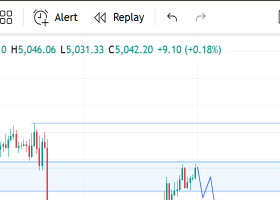Call it coincidence if you will, but the biggest initial public offering of all time also happened to hit Wall Street the same day the stock market peaked.
Almost at the exact moment, actually: Just eight minutes after Alibaba's much-ballyhooed Sept. 19 IPO—which soared at the start but fizzled soon after—hit the market, the S&P 500 stock index reached its all-time high and has dipped sharply since.
This would hardly be the first time a big public debut coincided with a top in the equity markets—think AT&T Wireless back in 2000 or Visa in 2008, both highly successful initially but ultimately harbingers that investor interest had peaked and was setting up for a fall.
So it's not surprising to hear market experts wondering whether Alibaba has sent up a similar flare.
"History tells you that big deals tend to come during market tops," said Nick Colas, chief market strategist at ConvergEx. "Typically speaking, you need to see peak levels of investor interest in order to get big deals done."
That's especially critical when you're talking about the biggest IPO of all time, a label that e-commerce site Alibaba earned by raising $25 billion. (Visa's 2008 debut ranked second at $19.7 billion, while General Motors holds the third position with the $18.1 billion deal it scored in 2010.)
While it's impossible to tell yet whether the Alibaba offering has larger historical significance, the signs are there.
Stocks had been on a bumpy but higher trajectory heading into the event, with the S&P 500 gaining nearly 9 percent for the year up to the IPO. Since then, however, it's off nearly 8 percent amid a period of extreme movements that has seen both the biggest gains and losses of the year.
The CBOE Volatility Index—a popular measure of market fear—has surged 126 percent in the same time frame, from less than 12 to above 26. For its part, Alibaba is off 7.3 percent from its initial day of trading.
Moreover, a blistering 2014 pace for IPOs has cooled dramatically. Offerings to date have moved at their highest pace in 14 years, with 241 deals priced at a total of $81.9 billion, according to Dealogic, but activity has declined in September and October, with just three priced over the past week and three more filed.
Dealogic said a VIX above 20 is historically consistent with a tame IPO market. In the June 2012 to September 2014 time period, the VIX averaged below 20, a time during which an average 28 IPOs a month were completed. In the April 2010 to May 2012 period, when the VIX averaged 23.2, just 14 deals a month got done.
Pricing also has been weak, with eight of the 21 October IPOs below range and only three priced above range. Alibaba, by contrast, had the biggest single-day gain ever for an IPO priced above $10 billion.
That heady time for Alibaba came amid strong investor confidence. Bullishness on the Investors Intelligence survey of industry professionals stood at 57.6 percent a week before and has been on a decline since.
"We've had a combination of headlines, whether it's Europe, whether it's China, whether it's Ebola, whether it's a certain economic number, whether it's uncertainty with the Fed," Todd Salamone, senior vice president of research at Schaeffer's Investment Research. said in explaining the market's troubles over the last month. "The sentiment picture has really gyrated."
That's not unusual for a market that kept going up despite some scary headlines, only to fall on seemingly good news like Alibaba's successful debut.



